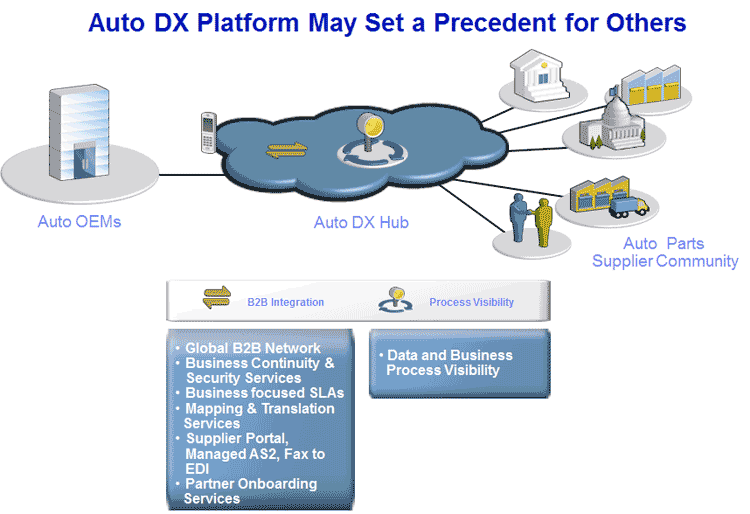It didn't quite work out that way. The exchange was plagued by technology issues, huge resistance to changing processes and much more, and was gone not many years later in one of the worst supply chain disasters of all time.
So is this another Covisant in the making?
Absolutely not, says Terrence Curley, an IBM executive, in an interview with SCDigest. First, he noted that unlike Covisant, the Auto DX exchange has been built with proven technology - its Sterling B2B Collaboration platform that has been used to create many private exchanges.
And Curley said that for now, the hub is really just going to focus on connectivity, not procurement, although he did not rule out the possibility of adding exchange capabilities down the road after the communications hub has proven its value.

Source: IBM
Interestingly, Curley also said that all participants in Auto DX will share in its cost of operations, including the OEMs. He said India's manufacturers designed that in from the beginning, not wanting to appear as forcing something on the suppliers that they would have to pay for alone.
"This is a path breaking, industry-wide initiative that seeks to create an overarching platform for the entire Indian automobile industry," said Jagdish Belwal, CIO, Tata Motors. "This system created by IBM will go a long way in improving overall efficiencies across the entire automotive ecosystem by standardizing the data definitions, data interchange formats and therefore expanding the possibilities of automation."
If this Indian project is a success, it may just spur other sectors to initiate similar strategies. Auto DX is certainly not a new concept - but maybe now the time is right to finally see it through.
Is now finally the time for this kind of industry-wide communication hub? Why or why not? Let us know your thoughts at the Feedback section (email) or button below.
SCDigest is Twittering!
Follow us now at https://twitter.com/scdigest

|